One Tuesday a few weeks ago I accompanied Duncan Drennan (The Art of Engineering), Duncan’s beautifully pregnant wife Donne, Pia Taylor (Mother City Living), Stefan (a lecturer in applied mathematics at Stellenbosch) and Ruan (a helicopter pilot in training) on a tour of the Fezeka community garden in Gugulethu and the Harvest of Hope packing shed in Phillipi. Both the Fezeka garden (one of many community gardens) and Harvest of Hope form part of the Abalimi Bezekhaya organisation that assists urban farmers to produce food for themselves, their families and communities and to sell their surplus crops.
We started the tour at the BP service station on Rosmead Avenue where we were met by Rob Small, a friendly and enthusiastic man who works tirelessly to bring in funds for Abalimi, as well as running regular Tuesday morning tours of the gardens in a bid to win over more supporters to the project. Rob overflows with passion for the Abalimi project and what it is doing for people in Cape Town’s townships. His enthusiasm is infectious and seeps into everything he says.

Rob lead the way into Gugulethu and Fezeka, where he explained how 40% of the residents of Cape Town’s informal settlements are unemployed, and where there’s poverty, there is also hunger. The core business of Abalimi is to combat poverty by growing food sustainably (and organically) both at home and in community gardens, and to further green the township areas by planting water wise indigenous trees in the schools and streets of the area. Rob explained that when the Abalimi project started 15 years ago, their aim was to help people achieve subsistence from their growing activities. These days they have surpassed that and are aiming at providing a livelihood for those who before had a hard time even feeding themselves.
We were shown around Fezeka Garden and met some of the mama’s who run the place. There are very few men involved in growing community gardens on the Cape Flats, the majority of the farmers are women.
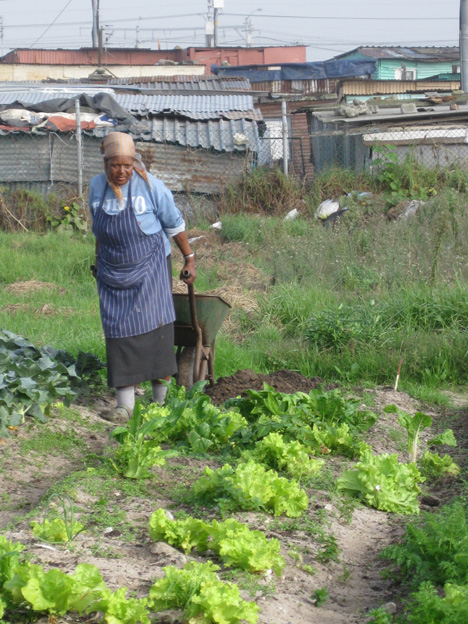
We were able to take photographs of the gardens and ask Rob questions about how Abalimi facilitates the creation of these food gardens. He explained that Abalimi “subsidises” the farmers to the tune of R150 per farmer per month (that’s around US $15 a month) by providing training, manure and set-up and maintenance of an irrigation system for each garden. This figure is much, much lower than the subsidies provided by government to commercial farmers. Abalimi also helps the farmers gain access to council land and negotiates on their behalf to obtain access to water, for example.
From Fezeka we moved on to the Harvest of Hope packing shed in Phillipi. Harvest of Hope is the marketing and selling arm of Abalimi. They collect the vegetables from the farmers once a week and take them back to the packing shed to wash and prepare for delivery. The vegetables make up weekly organic vegetable boxes that are distributed via some of Cape Town’s southern suburbs schools. (It is possible to buy a Harvest of Hope veg box even if you don’t have children at one of the selected schools, see below for more details).
I was blown away by the amazing fresh smell as we walked into the packing shed. It was a beautiful experience.
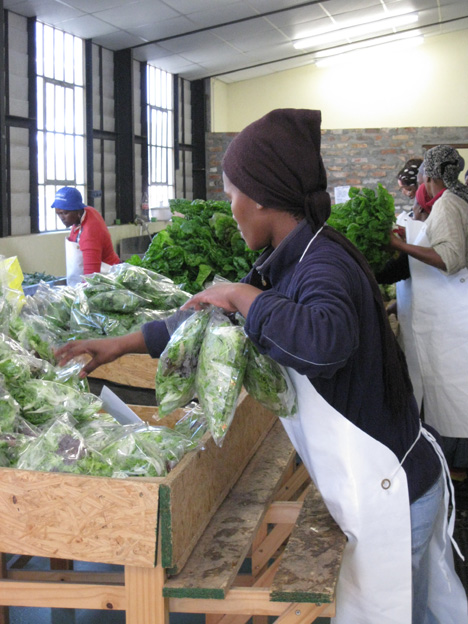
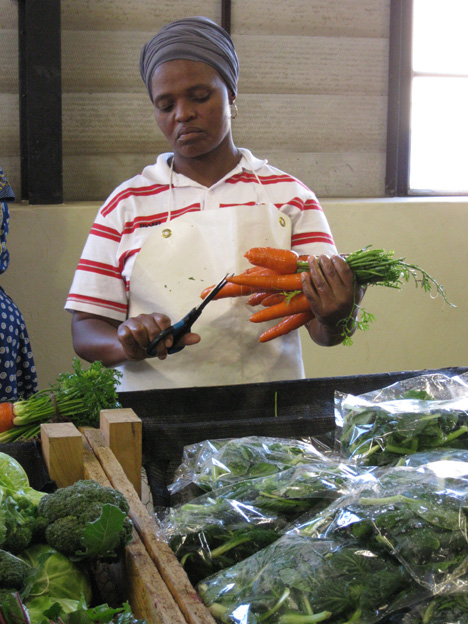
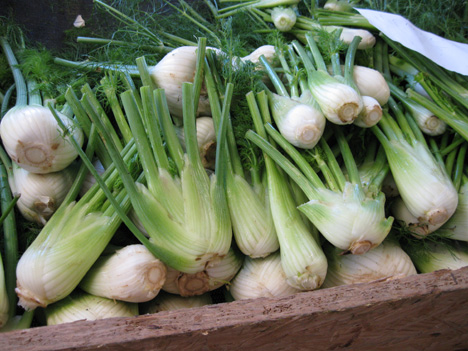

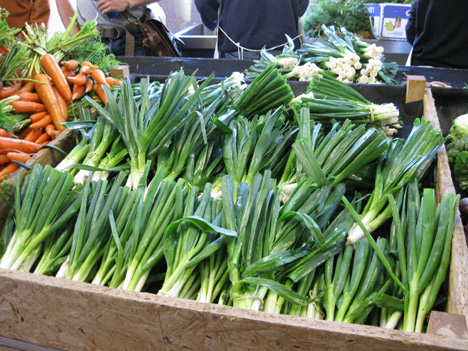
How to get your hands on a Harvest of Hope organic veg box
You’ll either need to have a child in one of the following southern suburb Cape Town schools (Herschel, Micklefield, Springfield, WPPS, Greenfield, Oakhurst, Rondebosch), be a student at UCT, or you can collect from The Green House at the Montebello Design Centre in Newlands.
Either way, contact Harvest of Hope at harvestofhope@abalimi.org.za or call them on 021-371 1653 to place your order.
A medium veg box (for a family of 4) is R95 a week and a small veg box (for 2) is R65 a week at time of publishing this post. I think you’ll agree that this is wonderful value compared to some other veg box schemes available locally, and you’ll be getting your vegetables the very same day that they are picked, with all their vitamins and goodness intact.
Other ways to get involved with this awesome project
Donate: Any amount, big or small, will be welcomed by Abalimi Bezekhaya for the continuation of this project. Information on how to make a donation is found here, on the Abalimi website.
Volunteer: Volunteers are welcomed with open arms at Abalimi. You can help in a community garden, or at the packing shed, or by doing deliveries to schools. You choose how you would like to be involved. If you are interested, I would recommend going on one of Rob’s tours to get an idea of how it all works and to meet some of the farmers before deciding how you would like to volunteer your time.
Take a tour: Rob Small runs tours of the project every Tuesday morning, by appointment. Please contact him for more info at info@abalimi.org.za
[ad#468×60]